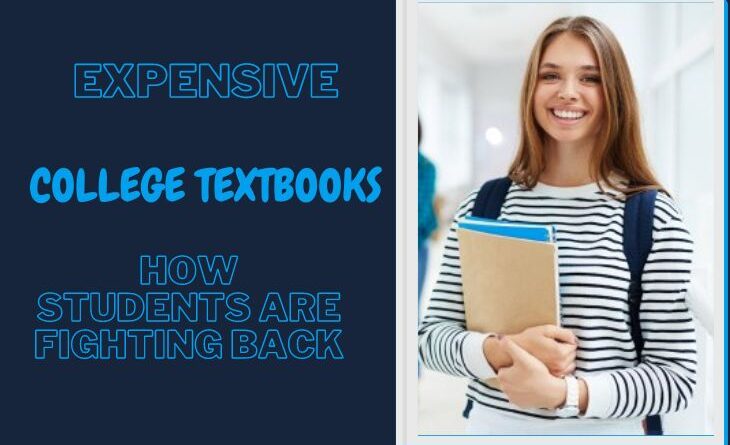Expensive College Textbooks: How students are Fighting Back
For their part, college textbook publishers have started to acknowledge that some students are now unable to pay for college textbooks and other course materials, even if it means that their grades may suffer as a result. Publishers assert that emerging technology, such as digital textbooks and subscription services like Netflix, make college textbooks more accessible to everyone. Advocates for affordable education, however, argue that publishers are to blame for the fact that college textbook prices have increased by more than 1,000 percent since the 1970s. According to these advocates, publishers are using these new technologies to maintain their monopoly on the market while passing it off as reform.
Why do College textbooks cost what they do?
Tuition is frequently the topic of discussions regarding college affordability, and with good reason: according to a Bureau of Labor Statistics analysis, the cost of attending college in the US climbed by 63 percent between 2006 and 2016. The number of money students spend on items like college textbooks might seem insignificant in comparison to tuition, which can cost out-of-state students at public institutions as much as $26,000 per year or upwards of $40,000 at certain private colleges.
However, the cost of college textbooks has also surged over the past ten years: the BLS data states that between 2006 and 2016, the cost of college textbooks rose by 88 percent.
For books and other course materials, the College Board advises that students set up $1,200 per year, which may be an astronomical sum of money for students from low-income families.
Not all college textbooks are priced similarly, nor are they all produced equally. Books for STEM (science, technology, engineering, and math) subjects like chemistry or calculus typically cost more than those for humanities courses like art and history.
Some teachers choose to complete their curricula with a combination of journal articles and other materials, others of which are free and some of which are not, rather than assigning any college textbooks at all.
Money-Saving Strategies:
Since college textbooks now frequently include one-time passwords that provide students access to online resources and, occasionally, homework, other teachers can rely on a single textbook for the majority of their courses.
But generally speaking, since the 1970s, the amount of money that students are required to pay for course materials has grown far faster than the rate of inflation. Advocates for affordability refer to two main causes for this: a lack of competition in the publication market for higher education and the fact that professors, not students, ultimately determine which books are assigned. According to a 2016 PIRG analysis, Pearson, Cengage, Wiley, and McGraw-Hill are the top four publishers, and they own more than 80% of the market.
Additionally, major publishers avoid creating books in subject areas where their competitors have achieved success, which ultimately restricts the alternatives available to instructors for what to assign.
The price of digital college textbooks has also increased, especially those that include access credentials. When students purchase a college textbook, they are also funding the book’s research, editing, production, and distribution in addition to the binding and pages. Additionally, when a book includes an access code, the purchaser also pays for the creation of — and, as the name implies, access to — a variety of supplemental content, including lessons, videos, and homework assignments.
The resale market is also undercut by access codes, according to the PIRG research. The books are basically useless without the codes because they can only be used once. Additionally, they can stop kids from using other money-saving strategies like lending a book to a classmate.
Do digital college textbooks represent a price improvement? Or do they serve to further limit students’ choices?
Several students were reportedly unable to opt-out of inclusive access because their classes required them to access Pearson’s MyLabsPlus, a digital platform where students are required to submit assignments, according to the bookstore, which claimed to have obtained emails between professors, school administrators, and Pearson representatives via Freedom of Information Act requests.
Open-source textbooks: how students are fighting back
Advocates for students do not anticipate publishers taking the lead in the transition to really inexpensive course materials. Instead, they are pushing academics to use and create open-source, free college textbooks.
The true difficulty is persuading academics, who ultimately decide which books are assigned, to use the free alternatives. Professors typically assign books by prominent publishers or books with access codes because it’s simpler, rather than because they want students to suffer.
A growing number of colleges are using adjunct academics in place of full-time, tenured employees. Many graduate students who work as adjuncts are paid by the course, seldom receive benefits, and may learn they’ll be teaching a class just a few weeks before the semester starts.
To put it another way, they may need more time or money to spend the summer creating a lesson plan or collaborating with librarians to discover high-quality resources that will be affordable for kids.
Books with access codes can help with that. These books are packed with approved, pre-selected supplemental content and online gradable homework. They demand far less work from underpaid educators in terms of time. They are the publishing sector’s response to a once-secure labor force whose precariousness has increased.
Thus, the growing price of college textbooks is a symptom of one of higher education’s biggest paradoxes: as everything from housing to books to tuition increases in price, those responsible for ensuring that students receive quality education are being obliged to work more for less pay. As a result, both teachers and students struggle to make ends meet.
Free College Textbooks: SolutionInn
United with students to fight the monopoly, SolutionInn has successfully initiated a free college textbook portal that enables students to get their desired college textbook title with absolutely no charges.
The process is pretty simple. You pick a title, add in your mailing details, and get it delivered the very next day – with zero delivery charges! Sounds promising? Do check them out!



